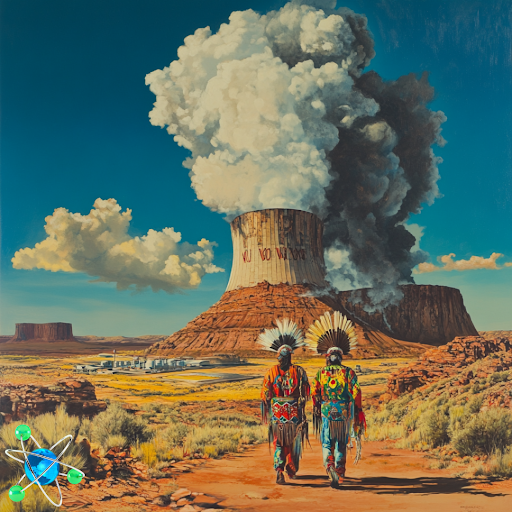
- Navajo Nation President Buu Nygren issued a six-month executive order banning the transportation of radioactive materials across Navajo land without prior agreement, reflecting a strong stance against uranium producers like Energy Fuels.
- The order, rooted in historical grievances from uranium mining during the Cold War, emphasizes the need to address the environmental and health impacts on the Navajo people before allowing new uranium activities on their land.
- This move underscores the broader struggle to balance economic interests with historical and environmental justice, pushing for accountability from corporations and governments involved in past uranium mining operations.
In a move that underscores the ongoing tension between the Navajo Nation and uranium producers, President Buu Nygren has issued a six-month executive order banning the transportation of radioactive materials across Navajo land without prior agreement. This decision comes amid a dispute with Energy Fuels, a major uranium producer in the U.S., which recently began operations at its Pinyon Plain mine in Arizona and La Sal plant in eastern Utah.
Nygren’s executive order, which references the 2005 Navajo Nation Natural Resources Protection Act and the 2012 Radioactive and Related Substances Transportation Act, is a clear message: the Navajo Nation is committed to addressing the legacy of uranium mining that has left deep scars on their land and people.
The controversy highlights a broader struggle to balance economic interests with historical and environmental justice. Energy Fuels had informed relevant parties about their plans to transport uranium materials, but the details regarding the timing of these transports were not specified, leading to the current standoff.
The roots of this conflict lie in a troubling history. During the Cold War, the U.S. government’s demand for uranium led to extensive mining operations on Navajo land from 1944 to 1986. Over 30 million tons of uranium ore were extracted, resulting in severe health issues for Navajo miners and their families, as well as environmental damage.
President Nygren’s order reflects a determination to confront this past before allowing new activities on sacred land. “Before uranium can pass over our lands, we must address the historical impacts of past mining,” Nygren said. This approach aims to ensure that the negative consequences of previous mining operations are not ignored and that cleanup efforts are prioritized.
The Navajo Nation’s stance is part of a broader effort to hold corporations and governments accountable for past injustices. By imposing these transportation restrictions, the Navajo Nation seeks to bring overdue attention to the environmental and health impacts of historical uranium mining and to ensure that future operations do not repeat past mistakes.
As both parties work towards a resolution, this situation serves as a stark reminder of the need for respectful and equitable dialogue between Indigenous communities and industry players. Addressing historical wrongs while pursuing economic development remains a delicate balance, and the Navajo Nation’s actions highlight the ongoing struggle for justice and respect.

0 Comments